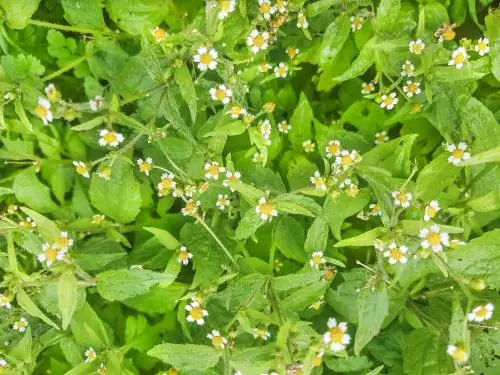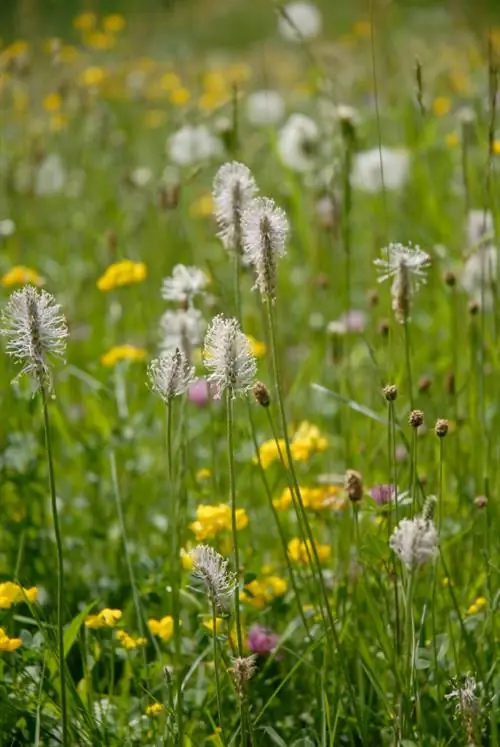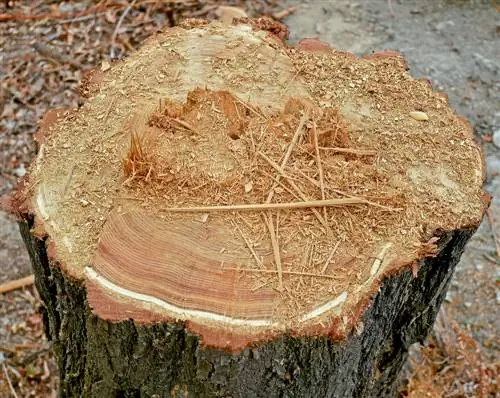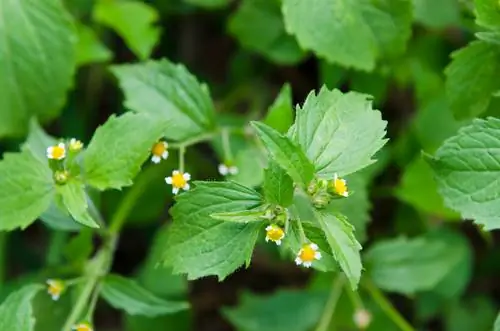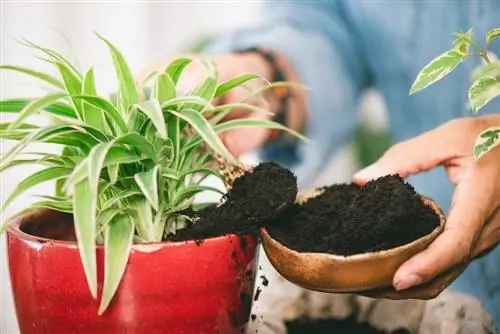- Author admin [email protected].
- Public 2023-12-16 16:46.
- Last modified 2025-01-23 11:21.
Frenchwort multiplies explosively. No wonder, every single plant produces more than a thousand seeds. In the garden, the herb gradually displaces other plants. When it comes to combating it, you need to be diligent and consistent, this is the only way to get rid of it permanently.
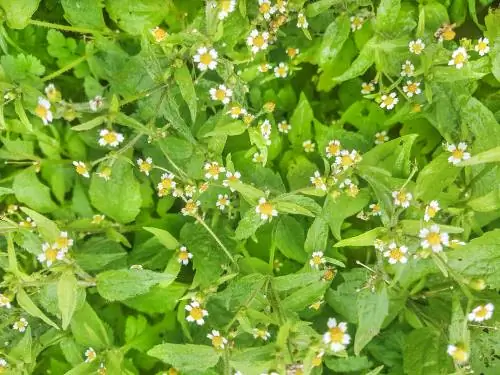
How can you combat French weed effectively?
To successfully combat Frenchweed, you should weed regularly before the plant flowers to prevent seed formation. Remove flowering plants through household waste or organic waste bins and avoid bare soil by mulching areas or planting ground cover.
Annual and not hardy
The buttonweed, as the plant is also called, is an annual plant that does not survive the cold winter. Nevertheless, they can be spotted every year, usually in even larger numbers than before. This is because the herb successfully sows itself via seeds.
Tip
Before you have completely removed the “weeds” from your garden, you should probably taste them. French herb is not poisonous but edible. In France it was once even grown as a cultivated vegetable.
Prevent seed formation
When combating the plants currently growing in the garden, future generations must also be kept in mind. Every seed that falls on fertile soil can later develop into a strong plant. It must not come to that, otherwise every control measure will be pure Sisyphean work.
- Fight plants before they bloom
- work thoroughly, don't overlook a copy
- pay attention to new plants early in subsequent years
Weed Frenchwort regularly
You can only prevent seed formation if you weed all plants at a young stage. Without its typical flowers, the French herb looks confusingly similar to some summer flowers. This is where we need to look closely and act decisively.
Fortunately, the herb is relatively easy to pull out of the ground. Search your garden at regular intervals so as not to miss a single specimen. Even a single undiscovered plant can spread countless seeds.
Chemical Agents
Of course there are also total herbicides on the market that destroy this weed and all other plants. However, it is such a strong poison, which is why we do not recommend it for nature's sake.
Dispose of flowering plants
All flowering plants should be disposed of with household waste or the organic waste bin, but under no circumstances should they be added to the garden compost. The seeds would survive there safely and find their way back into the bed.
Avoid inviting spaces
Every unoccupied spot in the garden is like an open invitation to the French herb, which it gladly accepts. Take away this habitat.
Areas mulched with a natural material under bushes, larger perennials or in the vegetable patch remain largely weed-free. The French herb hardly has a chance. Planting ground cover plants is another way to attractively plant bare soil before buttonweed can conquer it.

